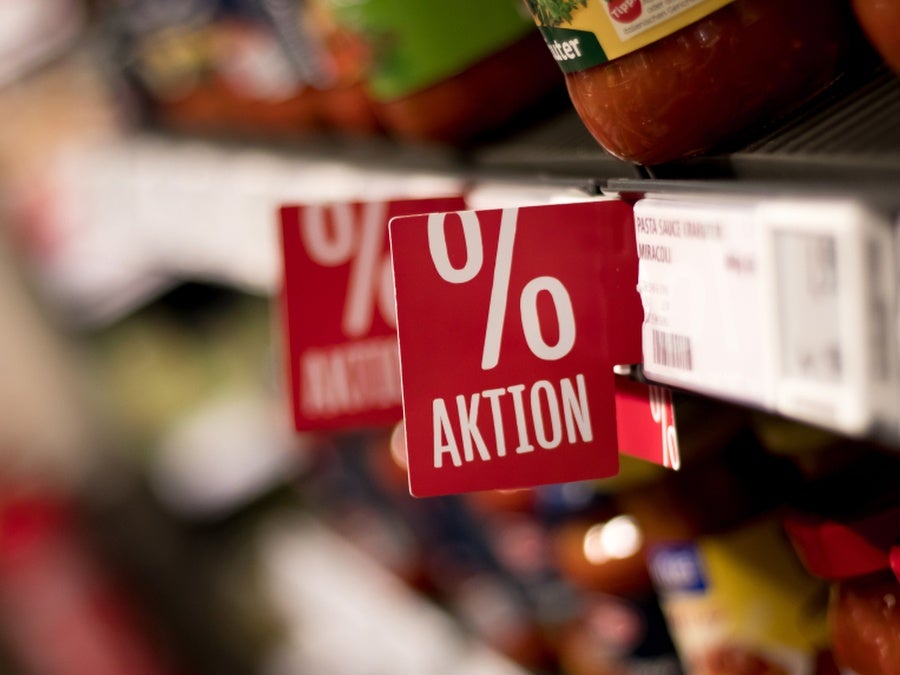
The elevated cost of food is keeping Germany’s inflation rate high, the latest government statistics have revealed.
Figures released today (11 July) by the country’s Federal Statistical Office – Statistisches Bundesamt – revealed inflation in June was 6.4% higher than 12 months earlier and up from 6.1% in May. The rate of inflation had slowed in the previous three months.

Discover B2B Marketing That Performs
Combine business intelligence and editorial excellence to reach engaged professionals across 36 leading media platforms.
Food inflation remained high, at 13.7%, but was down from May’s figure of 14.9%.
In June, almost all food groups continued to be more expensive than a year earlier, the data showed. The price of dairy products rose 22.3% year-on-year, while the combined group of sugar, jam, honey and ‘other confectionery’ was 19.4% more expensive.
Vegetable prices were up 18.8% year on year, while bread and cereal products climbed 18.3%.
Bucking the trend were edible fats and oils, which were 12.1% cheaper than a year earlier.

US Tariffs are shifting - will you react or anticipate?
Don’t let policy changes catch you off guard. Stay proactive with real-time data and expert analysis.
By GlobalDataThe Statistisches Bundesamt also pointed to the lapping of government discounts on fuel and rail fares.
In June 2022, in a bid to counter rising energy prices, the German government cut taxes on fuel and introduced a reduced-cost public transport ticket, causing inflation to fall.
Statistisches Bundesamt president Ruth Brand said: “The inflation rate has thus picked up again after having weakened three months in a row.
“Food is still the strongest price driver. In addition, the federal government’s relief measures from 2022 – [the] €9 ticket ($9.90) and fuel discount – have a base effect that increases the current inflation rate.”
The German inflation rate in June, excluding energy and food, was 5.8%.





